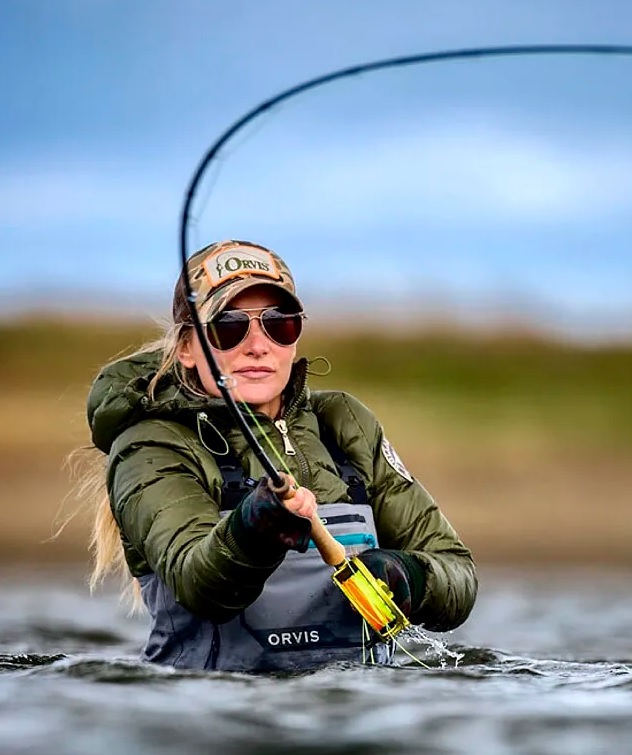"I have been constantly reminded that there are people who are offended by my presence, with fishing boots, simply for being young, a woman, and blonde"...
At 33, having been casting a line since the age of five, Marina Gibson thought she had seen and heard it all rubbing shoulders with fishermen. She details her experiences in Cast, Catch, Release, the autobiography published this year where she describes the "peace and purpose" achieved by practicing her favorite sport in rivers and lakes.
The book can be read as a love letter to nature and the "king of fish," the Atlantic salmon. However, between the lines, one can perceive the isolation and frustration that has accompanied her throughout her life, surrounded by men who looked down on her and made her feel like a fish out of water with bouts of "soft misogyny."
The notoriety gained from her autobiography gave Marina the courage to openly express a thought that has been on her mind for some time: "It is time for the most renowned fishing club in the UK to finally admit women."
She was specifically referring to the Flyfishers' Club, founded 140 years ago with King Charles himself as its patron. Located on two floors above the elitist Savile Club, with its chandeliers and stuccos, it also shares the typically London tradition of "gentlemen-only" (women cannot be full members).
Marina Gibson cast her line last spring when the ancient Garrick Club ended a 200-year-old ban and finally allowed women to join. But when she openly raised the issue to the male members of the Flyfishers' Club, the response was not what she expected...
"The objections they raised were incredible. They were concerned that women were not dressed 'appropriately' or were 'too noisy'. Some did not understand my interest, others told me to create my own organization for women (...). I don't want to have an organization just for 'female anglers.' What I want is to be treated as equals."
"I was surprised that they did not have a more open mindset," admits Gibson to The Guardian. "We are talking about one of the most renowned fishing clubs in the world. It is so sad that it remains reserved only for men when more and more women are taking up fishing. We have fought hard to make it a more inclusive sport."
Singer, fisherman, and environmentalist Feargal Sharkey has joined Gibson's cause and acknowledged how the Flyfishers' Club was known in his own family as "that bunch of old men in their shed." Phillipa Jake, known for her YouTube videos, has recalled how discrimination stems "from when men went fishing on weekends while women stayed home doing chores."
Marina Gibson recalls how in her own family there was always a curious parity and healthy rivalry between her and her brother, fishing in the River Oykel and on frequent excursions in the Scottish Highlands. Born in London, she was trapped for years in the city's networks, but when she turned 21, her parents gifted her a complete fishing kit, and she felt the same excitement as in her childhood.
In 2019, she founded the Northern Fishing School in North Yorkshire, boasting nearly equal numbers of female and male students. Shortly after, she established the Cancer and Pisces Trust to promote the therapeutic use of fishing for cancer patients. In her environmentalist role, she is a member of River Action UK and an "ambassador" for salmon protection.
"Many people ask me: 'Doesn't it take a lot of patience to engage in fishing?'" admits Marina Gibson. "And I tell them: it takes patience to learn, but once you master the technique it's like an exciting adventure. The mental and physical benefits are tremendous. It's all about focusing in an incredible natural environment. There's no room for boredom. More and more young people are interested: there's a large online community."
